On the return flight from Sarajevo to Rome, Francis announced the imminent decision on the Medjugorje apparitions. On the subject of negative television programmes he said consumerism is a “cancer” of society
On the return flight from Sarajevo to Rome, Francis announced the imminent decision on the Medjugorje apparitions. On the subject of negative television programmes he said consumerism is a “cancer” of society
We are living in a “third world war fought piecemeal”, there is an “atmosphere of war” in the world and some “seek to create and foment it” through culture and civilization clashes and by speculating on the sale of arms, because “some of the world’s powerful talk about peace and then go and sell weapons under the counter.” But peace is possible, it is “God’s plan”. From Sarajevo, a city that has become a symbol of fratricidal war in Europe, Pope Francis said he sees signs of hope. The wounds created by the last conflict fought in the 1990’s still run deep. Francis looked at all the children of different ethnicities and religions waving at him in the streets and addressing Bosnia-Herzegovina’s political authorities he said: “Children are the hope we should be betting on”.
Speaking to journalists on board the return flight from Sarajevo to Rome, Francis explained that the fact that he has chosen to embark on European visits starting with smaller countries such as Albania and Bosnia-Herzegovina, “that have suffered a great deal”, “is a sign”. Just as the words he pronounced before the country’s political authorities were a sign: he said Bosnia-Herzegovina “an integral part of Europe”. Below is a transcription of the questions and answers from the Pope’s conversation with journalists on the return flight.
You spoke about the powerful in the world who are involved in arms trafficking and about those who foment an atmosphere of war. Could you elaborate on this?
“There is always hypocrisy and this is why I said that simply talking about peace is not enough, you have to make peace. Those who simply talk about peace but do not make peace, contradict themselves. Those who talk about peace but foster war, through the sale of arms for example, are hypocrites.”
There is a big interest surrounding the phenomenon of the Medjugorje apparitions. What can you tells us about this?
“When Benedict XVI was Pope, he set up a commission on Medjugorje that was headed by Cardinal Ruini and composed of other cardinals and theologians. They prepared a study and Ruini delivered it to me after a few years of work. They did a good job. Cardinal Müller (Prefect of the Congregation for the Doctrine of the Faith, Ed.) told me that he was going to hold a dicastery meeting on this; I think it was held on the last Wednesday of the month. We are about to take some decisions and these will then be communicated. For now, bishops are just being given some indications.”
You spoke to young people about the need to exercise prudence when watching TV and using computers, you talked about “filth” and “bad fantasies”. What did you mean by this exactly?
“There are two different elements here: method and content. Regarding the method or way of doing things, there is one that is bad for the soul and that is being too attached to the computer. This is bad for the soul and it robs you of your freedom, you become a slave of the computer. It’s interesting, so many mothers and fathers say to me: when we’re at table our children are on their phones and it’s like they are on another planet. Virtual language is a form of progress for humanity but when it drives us away from our family, from social life, from sport and from art and we are glued to it, it becomes a mental illness. Secondly, the content. Yes, there is a lot of filth that ranges from pornography to semi-pornographic content, to programmes that are empty, devoid of values; relativism and consumerism foment all this. Ad we know that consumerism is a cancer of society, relativism is a cancer of society and I will talk about this in my next encyclical. There are some very concerned parents who do not allow their children to have a computer in their rooms but in a common space in their home. These are little things that help.”
One final question was to do with a potential papal visit to France, and existing “problems” were mentioned (an implicit reference to the lack of Vatican approval for Laurent Stefanini’s appointment as ambassador to the Holy See. The international press has been talking about Stefanini’s homosexuality for weeks.). “Little problems are not problems,” the Pope said. And he said he will visit France because “he promised it to bishops”.


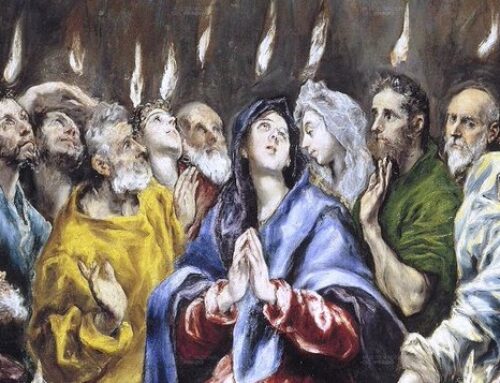
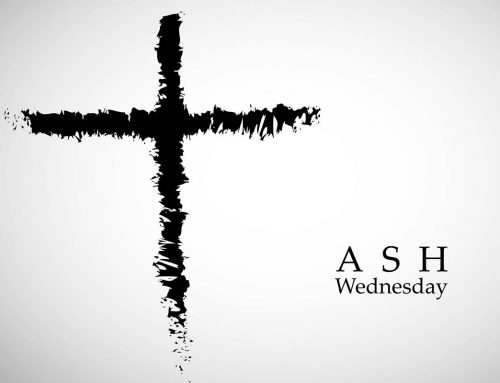
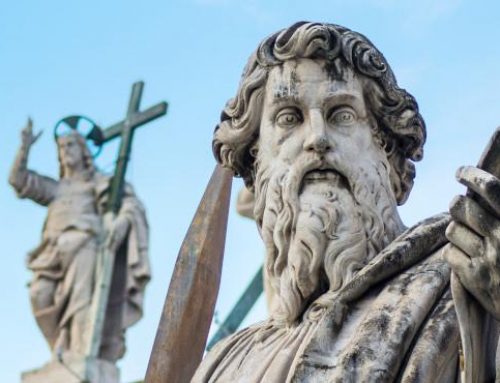
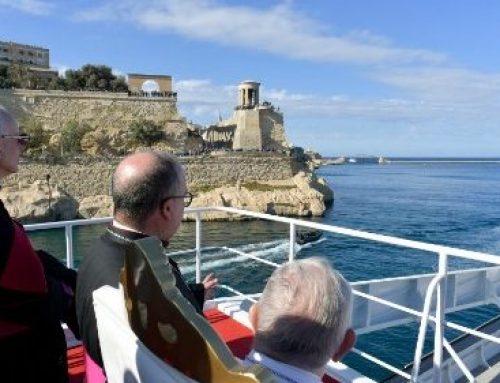
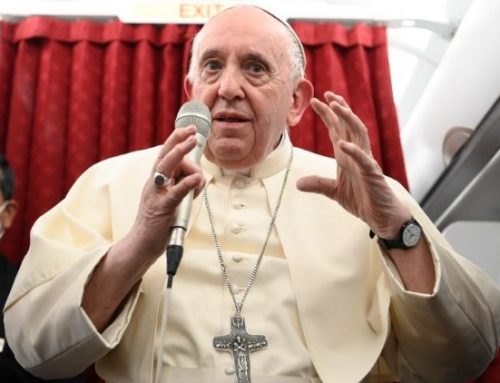
Leave A Comment
You must be logged in to post a comment.